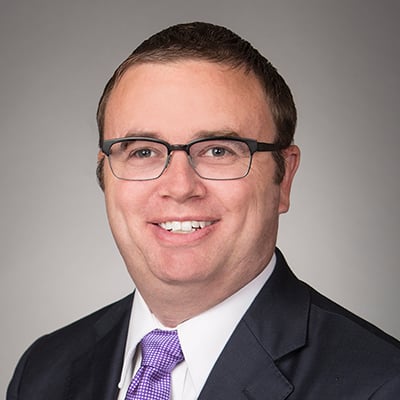Patent Cases To Watch In 2024
In this article for Law360, partners Jason Wilcox and Ellisen Turner discussed several patent cases to look out for in 2024 and their potential impact on the IP world.
A rare patent case taken up by the full Federal Circuit that has the potential to weaken design patents, and U.S. Supreme Court challenges to the Patent Trial and Appeal Board's authority are among the patent cases attorneys will be tracking this year.
LKQ Corp. v. GM Global Technology Operations
The full Federal Circuit agreed to review a patent decision for the first time since 2018 in this case, and the outcome could reshape the law on design patents by determining whether precedent making it difficult to invalidate them as obvious remains good law.
On Feb. 5, the en banc court will hear arguments in a case where LKQ, which unsuccessfully challenged GM design patents at the Patent Trial and Appeal Board, says the current design patent tests should be discarded as conflicting with U.S. Supreme Court's 2007 KSR v. Teleflex decision.
The Federal Circuit has long held that finding design patents invalid as obvious requires identifying an earlier design that has basically the same visual impression, then showing that it would be obvious to modify that one to create the patented design. LKQ argues that the test is at odds with KSR, which rejected "rigid" obviousness tests for utility patents.
The Federal Circuit sought briefing about whether current tests should be overruled or modified and the potential impact of such a change. Those questions "highlight that this is likely to be an important inflection point for design patents," said James Davis of Ropes & Gray LLP.
The court will have to address whether and how to apply utility patent decisions like KSR to design patents, which differ in many ways, but if the court does establish new design patent rules, the impact would be significant, attorneys said.
The current standard "is a fairly strict test," and if it were relaxed, the implication "at least as a matter of doctrine, would be that obviousness would be somewhat easier to prove for design patents," said Stuart Bartow of Duane Morris LLP.
A more flexible standard would also affect patent examination, meaning that "getting design patents could be more difficult," said Mark Stallion of Greensfelder Hemker & Gale PC. "Design patents are becoming more and more important in industry, so that's going to be a game changer."
There are far fewer design patents than utility patents overall, but between this case and the patent office creating a new design patent bar, 2024 "could be design patents' moment in the sun," said Jason Wilcox of Kirkland & Ellis LLP. "Normally, it's kind of the neglected arm of the patent community."
The case is LKQ Corp. v. GM Global Technology Operations LLC, case numbers 21-2348 and 22-1253, in the U.S. Court of Appeals for the Federal Circuit.
Intel Corp. v. Vidal
The Supreme Court could decide this month whether to wade into one of the more contentious issues in patent law, as it weighs a challenge to the Patent Trial and Appeal Board's policy on denying reviews of patents when a related infringement case is at an advanced stage.
At their Jan. 5 conference, the justices will consider an appeal by Intel and Edwards Lifesciences seeking to undo the dismissal of a key part of their suit arguing that the so-called Fintiv rule should be discarded as arbitrary.
The Federal Circuit held that the challenge cannot proceed because the America Invents Act bars appeals of PTAB decisions not to review a patent. But Intel and Edwards said they are not challenging any individual decision, but the underlying policy. Prohibiting review would give the board free rein to adopt unlawful rules without judicial oversight, they said.
That may resonate at the high court, since "I think the justices are generally skeptical of the idea that agency decisions are insulated from review," Wilcox said. They may look askance at the holding that the PTAB can't face the kind of "bread and butter Administrative Procedure Act challenges to broad-based policies" that can be brought against most other agencies, he said.
If the challenge to the Fintiv rule were allowed, "it would certainly open up a whole new front in litigation over what the PTAB is or isn't allowed to do when deciding whether to institute [reviews]," Wilcox added.
Fintiv has long rankled patent challengers because it lets the PTAB decide not to review a patent if a related district court case will go to trial first. Felicia Boyd of Norton Rose Fulbright said Intel and Edwards may have a persuasive case, because when the PTAB makes decisions, "they're just guessing" when the trial will take place.
"So doesn't that just make the rule irrational?" she said. "The Federal Circuit affirmed the approach and gave this really broad unreviewability principle, and I'm not sure that that amount of deference should be given."
The case is Intel Corp. et al. vs. Katherine K. Vidal, case number 23-135, at the U.S. Supreme Court.
VirnetX Inc. v. Mangrove Partners Master Fund
Another pending Supreme Court case seeks to rein in the PTAB's authority in a different context, with a patent owner saying the board wrongly let Apple join patent challenges that ended up wiping out a $576 million verdict against the company.
VirnetX's network security patents were invalidated by the board, and the company has told the justices that Apple should never have been allowed to join and lead the inter partes reviews.
Apple challenged the patents years earlier, but the board found those petitions were filed too late. When Mangrove, a hedge fund, filed its own challenges much later, the board let Apple join, saying the time limit does not apply to those joining another party's petition.
VirnetX, whose substantial verdict against Apple was thrown out by the Federal Circuit the day after it affirmed the PTAB rulings, told the high court that the decision "destroys an important limit on inter partes review."
While Intel is a patent challenger in Intel v. Vidal and VirnetX is a patent owner, both appeals deal with similar questions, Bartow said: "What are the bounds of what the PTAB is able to do pursuant to the IPR statute, and how much discretion do they have in terms of statutory interpretation?"
Boyd said she wondered if the court might want to hear the appeals in tandem, since "those two cases really jump out at me as ... an opportunity to actually clearly articulate what the standards are for rulemaking authority."
The justices have not yet scheduled a conference to consider the petition.
The case is VirnetX Inc. v. Mangrove Partners Master Fund Ltd. et al., case number 23-315, at the U.S. Supreme Court.
In re: Cellect LLC
A decision that could result in more patents being invalidated for double patenting has spurred a rush of calls for the full Federal Circuit to reconsider the holding.
A panel held in August that obviousness-type double patenting can be used to invalidate related patents that expire on different days when one has been given a longer term because of delays by the U.S. Patent and Trademark Office.
A host of amicus briefs have called for en banc review, saying the decision puts many patents at risk and wrongly lets the judge-made double patenting rule override the patent term adjustment law that compensates for examination delays. The USPTO has responded that the panel got it right on a "textbook" double patenting case.
R. Jason Fowler of Covington & Burling LLP said the case could attract the full court's interest because it affects patents across all industries, and "the more amicus briefs you see, the more interested the judges are going to get."
Before the ruling, the Federal Circuit had not decided whether double patenting could be used to invalidate related patents when one has received patent term adjustment, so the decision "is a very significant clarification, since every portfolio of a substantial size has some patents with a term adjustment," said Ellisen Turner of Kirkland & Ellis LLP.
Under the ruling, when overlapping patents expire at different times because of patent term adjustment, "you're truncating my term through no fault of my own. I haven't done anything; it's the fault of the patent office," Stallion said.
"I think they should rehear the case," he said of the court. "They need to provide some clarity there, because I think right now it's pretty murky."
The case is In re: Cellect LLC, case number 22-1293, in the U.S. Court of Appeals for the Federal Circuit.
Google LLC v. Sonos Inc.
A doctrine that can render a patent unenforceable when a court decides, years after the fact, that the owner unreasonably delayed the application process for it will be in the spotlight of this appeal of an October decision that scrapped a $33 million verdict against Google.
Turner said that while the prosecution laches doctrine has been used to wipe out patents in other recent cases, those involved patents predating a 1995 change in the law that eliminated an incentive for applicants to extend patent prosecution to secure a longer patent term.
U.S. District Judge William Alsup's decision that the speaker maker Sonos engaged in unreasonable delay when prosecuting its more recent patents in order to alter them so they cover Google products involved a continuing application strategy that was frequently used even after 1995, Turner said.
By holding that such targeted prosecution is impermissible if there is excessive delay, even for post-1995 applications, the judge's decision "is a new application of the prosecution laches doctrine, and it'll be very interesting to see whether the Federal Circuit broadly applies the doctrine in this scenario, or instead limits Sonos to its facts," he said.
The strategies employed by Sonos are used so often in patent prosecution that if the decision is upheld, many patent owners will "find out that their patent portfolio just became a lot less valuable," Wilcox said.
"I think that that would be a pretty significant development for the patent bar if … the Federal Circuit ultimately affirms and decides that Judge Alsup was right, just given how common of a practice that is," he said.
Sonos' opening appeal brief is due in February.
The case is Sonos Inc. v. Google LLC, case number 24-1097, in the U.S. Court of Appeals for the Federal Circuit.


